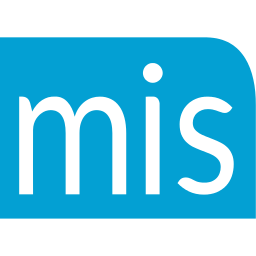I’ve written, tested, re-written, tweaked, copy edited, composed, marketed, reviewed, and used thousands of telemarketing scripts over the last 26 years.
I’ve written and used opening scripts, closing scripts, prospecting cold calling scripts, warm inbound scripts, closing scripts, rebuttal scripts, trial close scripts, initial resistance scripts, blow off scripts, qualifying scripts, etc….
Bottom line? Nobody writes better scripts than yours truly, Mr. Inside Sales. Heck, I wrote the book on scripts The Complete Book of Phone Scripts which you can get at almost half price today by using the coupon code: SCRIPTS But more on that later…
When companies and sales reps hire me to write or review or tweak their prospecting scripts, almost always I find they are saying or doing the same things wrong. In today’s article, I’m going to give you The 5 Secrets to writing Killer Prospecting Scripts.
Secret #1: Stop asking, “How are you today?” Believe it or not, 80% of your competition still advertise themselves as lame sales reps making cold calls by asking this over used and insincere question. Nothing identifies you more as a pesky telemarketer than opening your call with that question.
Instead, try: “Hi _________, how’s your (day of the week) going?”
Or, “Well hi _________, happy (day of the week) to you!”
These may not sound that impressive, but believe me, they work! Try it and see for yourself.
Secret #2: Stop talking at your prospect and instead ask a question so you can connect early on. Again, believe it or not, 80% of your competition start pitching as soon as they get their prospect on the phone. Compare your own script to this and ask yourself how long your first opening paragraph is. Three sentences? Four? Way too long!
You must engage your prospect right away and begin a conversation. That means asking them a question early on! Try something like (after you’ve wished them a happy Tuesday):
“__________ the reason for the call is to let you know about the service we provide with regards to your accounting procedures. Who’s handling that for you now?”
Or, “__________ briefly, the reason I’m calling is to show you how we could perhaps save you money and time with your widget process. I was told that you handle that, is that correct?”
See how that goes? It’s imperative that you connect right away, and the best way to do that is by asking a question.
Secret #3: Listen and Think B-4 You Respond Next: Asking a question in the beginning not only allows you to connect with your prospect, but it also allows you to gauge their reaction. The reason 80% of your competition is afraid to ask a question is they are afraid their prospect might not be interested. That’s OK!!
The Top 20% are anxious to find out who is, who isn’t, and how much someone might be. And they do that by carefully listening to their prospect’s response to this question, and then they Listen and Think B-4 Responding. You need to as well.
In other words, don’t just start pitching again here, but rather, be prepared to vary your response based on what and how your prospect responds. In other words, listen and react to what they say.
Secret #4: Make sure you have a list of questions to ask your prospect so you can gather all the information you’ll need to fully qualify or disqualify them. You need to know the six areas I’ve written on before, but basically you need to know:
• Why they’ll buy (their hot buttons)
• Why they won’t buy (possible deal killing objections)
• Who makes the decision (how many people are involved)
• What the decision process is all about – how long, etc.
• What other companies they are looking at (who your competition is)
• Their budget
If you don’t know all of these things before you send out your demo or information or quote, then I’ll bet you’re closing less than 3 out of 10 leads sent out.
Secret #5: Make an exact appointment time to get back with your prospect. You’d be amazed by how many sales reps are not doing this! Instead, 80% of sales reps are chasing and chasing unqualified leads they can never reach again (and who never close).
Making an appointment gives you SO much information. First, if they won’t commit it tells you how uncontrollable your prospect is. And remember, “Leads never get better!” Also, if your prospect misses your appointment, what does that say about them? And, of course, when your prospect is there and waiting for your call, what does that tell you?
Start setting a definite time with ALL your prospects and watch your closing rate start to climb…
So there you have it – the five secrets of writing killer prospecting scripts. You can instantly improve your prospecting script by incorporating any or all of these techniques. And if you want to do it the easy way, then take advantage of my Special Offer today and get over 110 pages of proven and effective scripts for over 40% OFF!
Right now, save $20 on my $49 “Complete Book Of Phone Scripts” Use the coupon code, SCRIPTS and save $20 instantly! You’ll get a ton of great scripts for just $29!! Visit: http://www.mrinsidesales.com/scripts.htm to read about this valuable sales resource.
Did you like these tips? Do you have questions about writing your own scripts? Leave your comment below.
